

| Cruise Region : UAE / Persian Gulf, Persian Gulf |
| Company : Costa Cruises |
| Ship : Costa Toscana |
| Journey Start : Sun 04 Jan 2026 |
| Journey End : Sun 11 Jan 2026 |
| Count Nights : 7 nights |
| Day | Date | Port | Arrival | Departure |
|---|---|---|---|---|
| 1 | 4.01 Sun | Dubai / UAE | ||
| 2 | 5.01 Mon | 25.6 N 56.9 E - Oman Gulf | 23:00 | 23:59 |
| 2 | 5.01 Mon | Dubai / UAE | 13:00 | |
| 3 | 6.01 Tue | Muscat / Oman | 08:30 | 19:00 |
| 3 | 6.01 Tue | Oman Gulf | 23:30 | |
| 4 | 7.01 Wed | Oman Gulf | 01:00 | |
| 5 | 8.01 Thu | Doha / Qatar | 07:00 | 17:30 |
| 5 | 8.01 Thu | Doha Bay | 18:00 | 20:00 |
| 6 | 9.01 Fri | Abu Dhabi / UAE | 07:00 | 22:00 |
| 7 | 10.01 Sat | Dubai / UAE | 07:00 | |
| 8 | 11.01 Sun | Dubai / UAE |
The cost of the cruise includes the following services on "All Inclusive" system:
accommodation in a cabin with services for the selected category
All inclusive excluding drinks
port charges, taxes and fees
For guests of all Classic cabins:
Accommodation in the cabin of the selected category (TV, telephone, shower / bathtub, hairdryer, air conditioning).
Harbor dues and taxes.
Meals on the system "All inclusive, excluding drinks." A free dinner system is applied on board.
Entertainment programs (evening shows, night clubs, live music, etc.).
The participation of children in children's clubs.
Fitness center, sports court, jogging track, pools and jacuzzi.
For guests of all cabins of the Premium category (in addition to all of the above services, it is additionally provided):
The best cabin layout on the liner.
Ability to choose a change of food during dinner.
Continental breakfast in the cabin.
Delivery of food to the cabin 24 hours.
10% discount for a future cruise when booking a Premium cabin (valid for one year from the end of the cruise). Does not apply to world cruises.
For all guests of the Suite category cabins (in addition to all the above services of the Premium category, it is additionally provided):
Priority landing on the liner.
Personal butler.
Fresh fruits in the cabin every day.
1 bottle of champagne and canapes.
Pillow menu.
An invitation to an exclusive cocktail with Captain.
Not included into the cruise costs, and require additional payment:
Tipping staff.
Casinos, telephones, internet, video games.
Alcoholic and non-alcoholic drinks.
Reservations at alternative restaurants.
Minibar in the cabin.
Individual services on board (SPA, beauty salon, laundry).
Additionally, in our company or independently booked and paid for services:
Flights
Transfers before and / or after the cruise.
Registration of entry visas along the route (if necessary).
Health insurance (required).
Travel insurance (optional).
Excursions in ports of call.
Last Minute Deals - 100% Penalty
Basic rate
Cancellation conditions - non-refundable amounts:
25% for more than 45 days before the cruise;
50% between 44 - 30 days before the cruise;
75% between 29 - 15 days before the cruise;
100% for a period of 14 or less before the cruise.
Comfort tariff
Cancellation conditions - non-refundable amounts:
50 € for a period of more than 45 days before the cruise;
25% between 45 - 30 days before the cruise;
50% between 29 - 15 days before the cruise;
75% between 14 - 5 days before the cruise;
100% for a period of 4 days or less before the cruise;
Deluxe Rate
Tariff disadvantages: Higher cost.
Cancellation conditions - non-refundable amounts:
50 € for a period of more than 45 days before the cruise;
25% between 45 - 30 days before the cruise;
50% between 29 - 15 days before the cruise;
75% between 14 - 5 days before the cruise;
100% for a period of 4 days or less before the cruise;
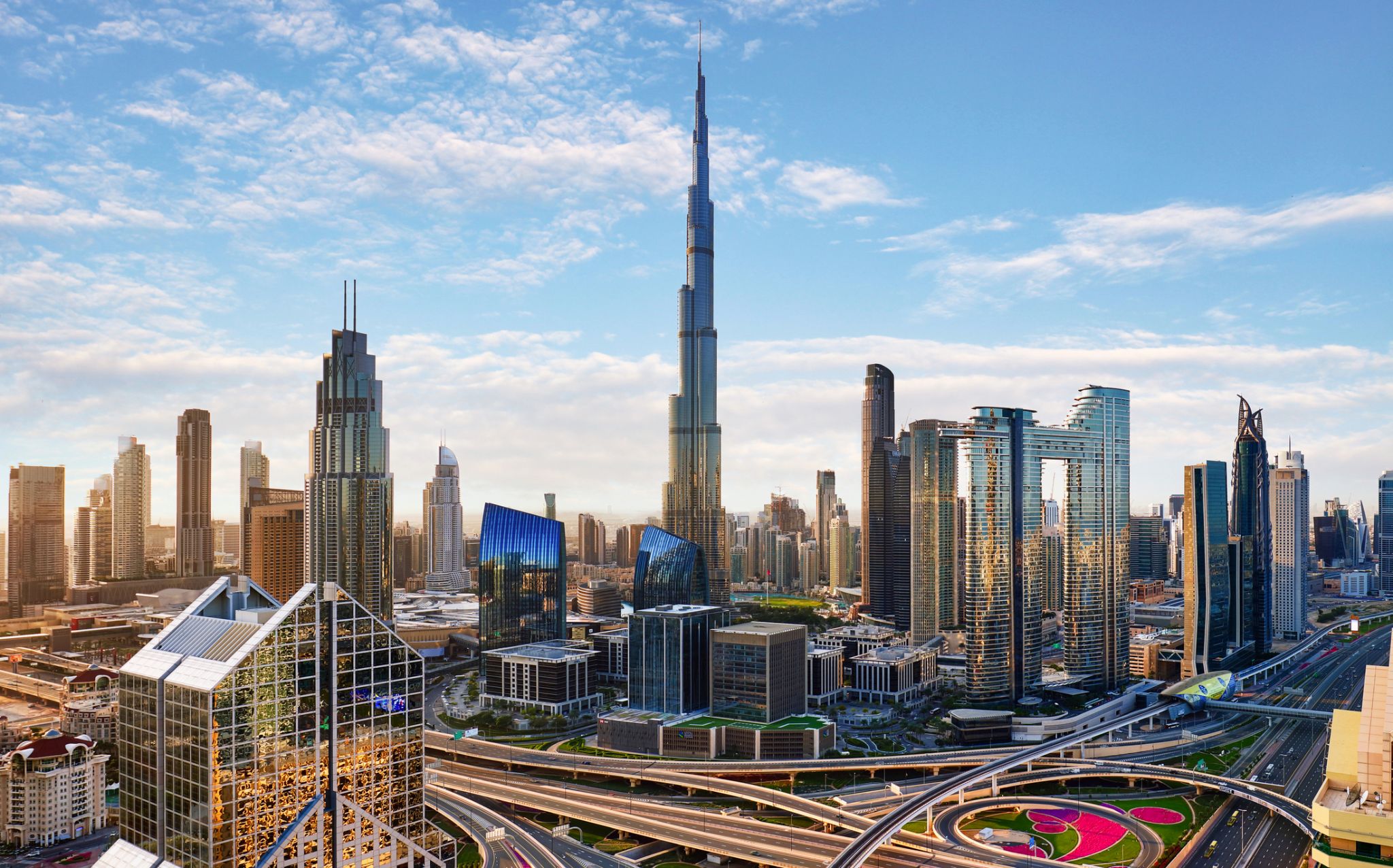
Dubai is the largest and most populous cityin the United Arab Emirates (UAE). On the southeast coast of the Persian Gulf, it is the capital of the Emirate of Dubai, one of the seven emirates that make up the country.
Dubai is a global city and business hub of the Middle East. It is also a major global transport hub for passengers and cargo. Oil revenue helped accelerate the development of the city, which was already a major mercantile hub, but Dubai's oil reserves are limited and production levels are low: today, less than 5% of the emirate's revenue comes from oil. A growing centre for regional and international trade since the early 20th century, Dubai's economy today relies on revenues from trade, tourism, aviation, real estate, and financial services.
Dubai has attracted world attention through large construction projects and sports events, in particular the world's tallest building, the Burj Khalifa. As of 2012, Dubai was the most expensive city in the Middle East. In 2014, Dubai's hotel rooms were rated as the second most expensive in the world.
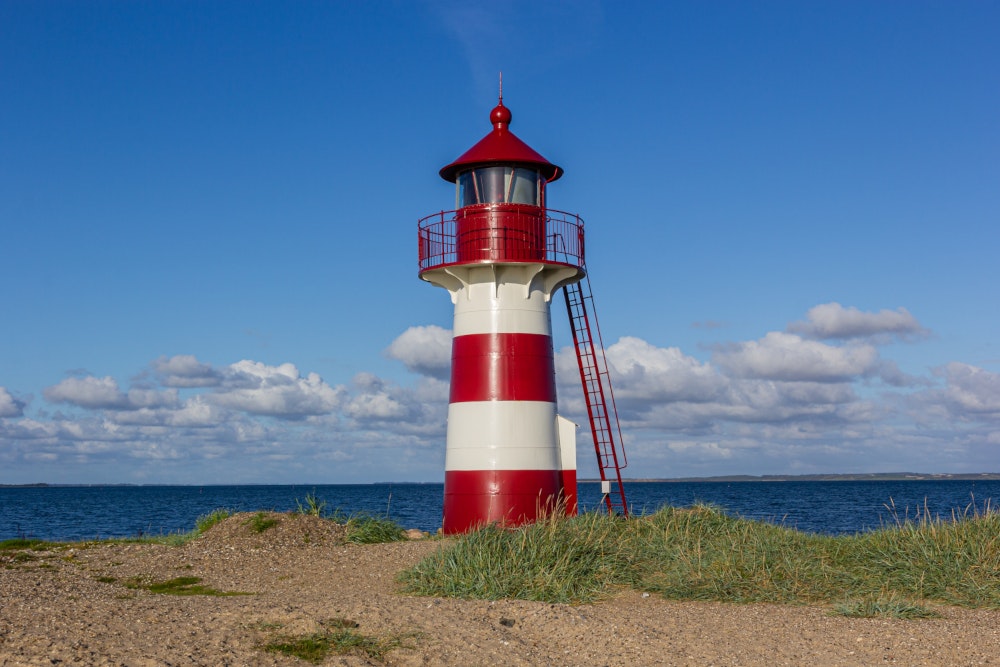

Dubai is the largest and most populous cityin the United Arab Emirates (UAE). On the southeast coast of the Persian Gulf, it is the capital of the Emirate of Dubai, one of the seven emirates that make up the country.
Dubai is a global city and business hub of the Middle East. It is also a major global transport hub for passengers and cargo. Oil revenue helped accelerate the development of the city, which was already a major mercantile hub, but Dubai's oil reserves are limited and production levels are low: today, less than 5% of the emirate's revenue comes from oil. A growing centre for regional and international trade since the early 20th century, Dubai's economy today relies on revenues from trade, tourism, aviation, real estate, and financial services.
Dubai has attracted world attention through large construction projects and sports events, in particular the world's tallest building, the Burj Khalifa. As of 2012, Dubai was the most expensive city in the Middle East. In 2014, Dubai's hotel rooms were rated as the second most expensive in the world.
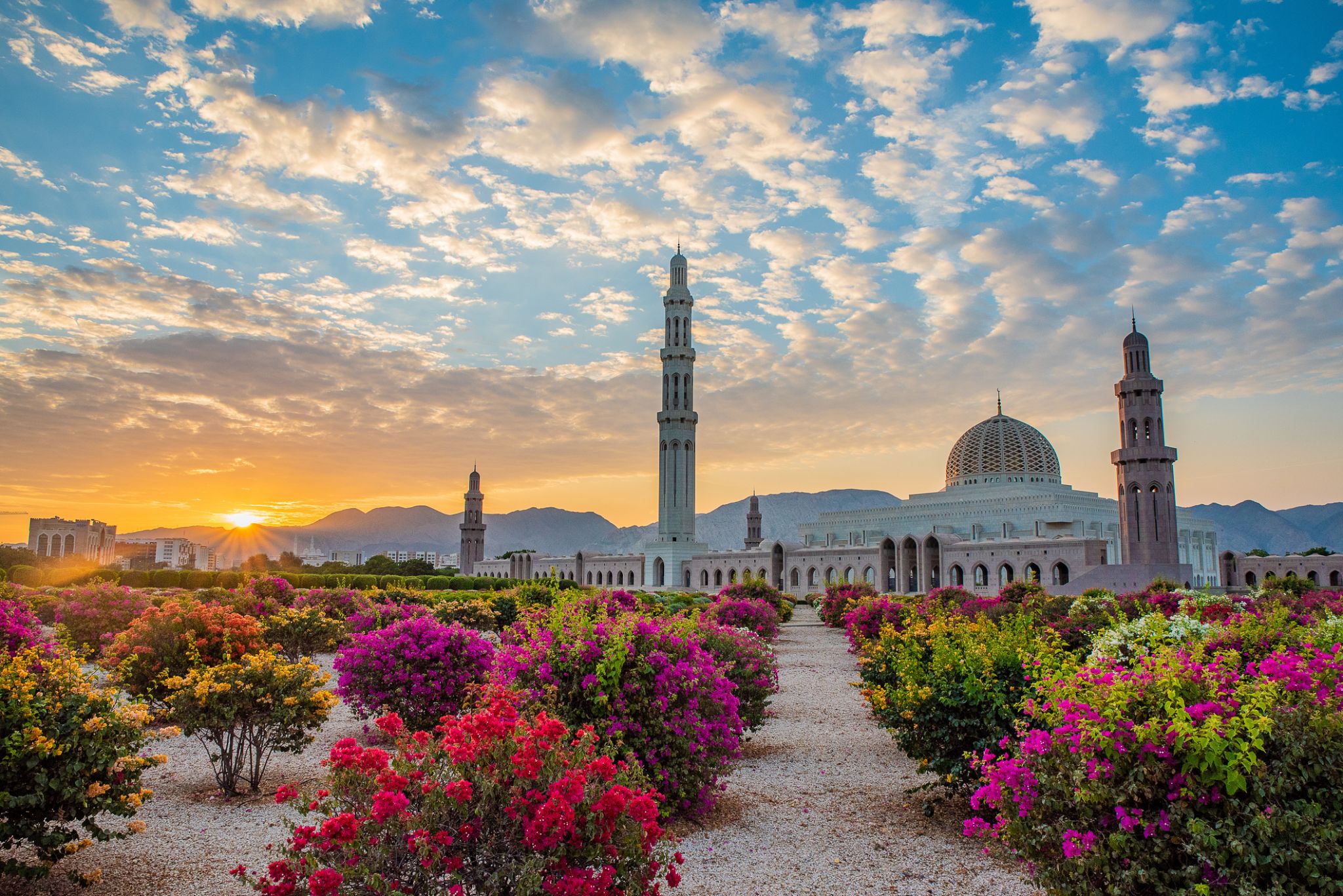
Muscat is the capital and largest city of Oman. It is the seat of the Governorate of Muscat. According to the National Centre for Statistics and Information (NCSI), the total population of Muscat Governorate reached 1.4 million as of September 2018. The metropolitan area spans approximately 3,500 km2 (1,400 sq mi) and includes six provinces called wilayats. Known since the early 1st century CE as an important trading port between the west and the east, Muscat was ruled by various indigenous tribes as well as foreign powers such as the Persians, the Portuguese Empire, the Iberian Union and the Ottoman Empire at various points in its history. A regional military power in the 18th century, Muscat's influence extended as far as East Africa and Zanzibar. As an important port-town in the Gulf of Oman, Muscat attracted foreign tradesmen and settlers such as the Persians and the Balochis. Since the ascension of Qaboos bin Said as Sultan of Oman in 1970, Muscat has experienced rapid infrastructural development that has led to the growth of a vibrant economy and a multi-ethnic society.


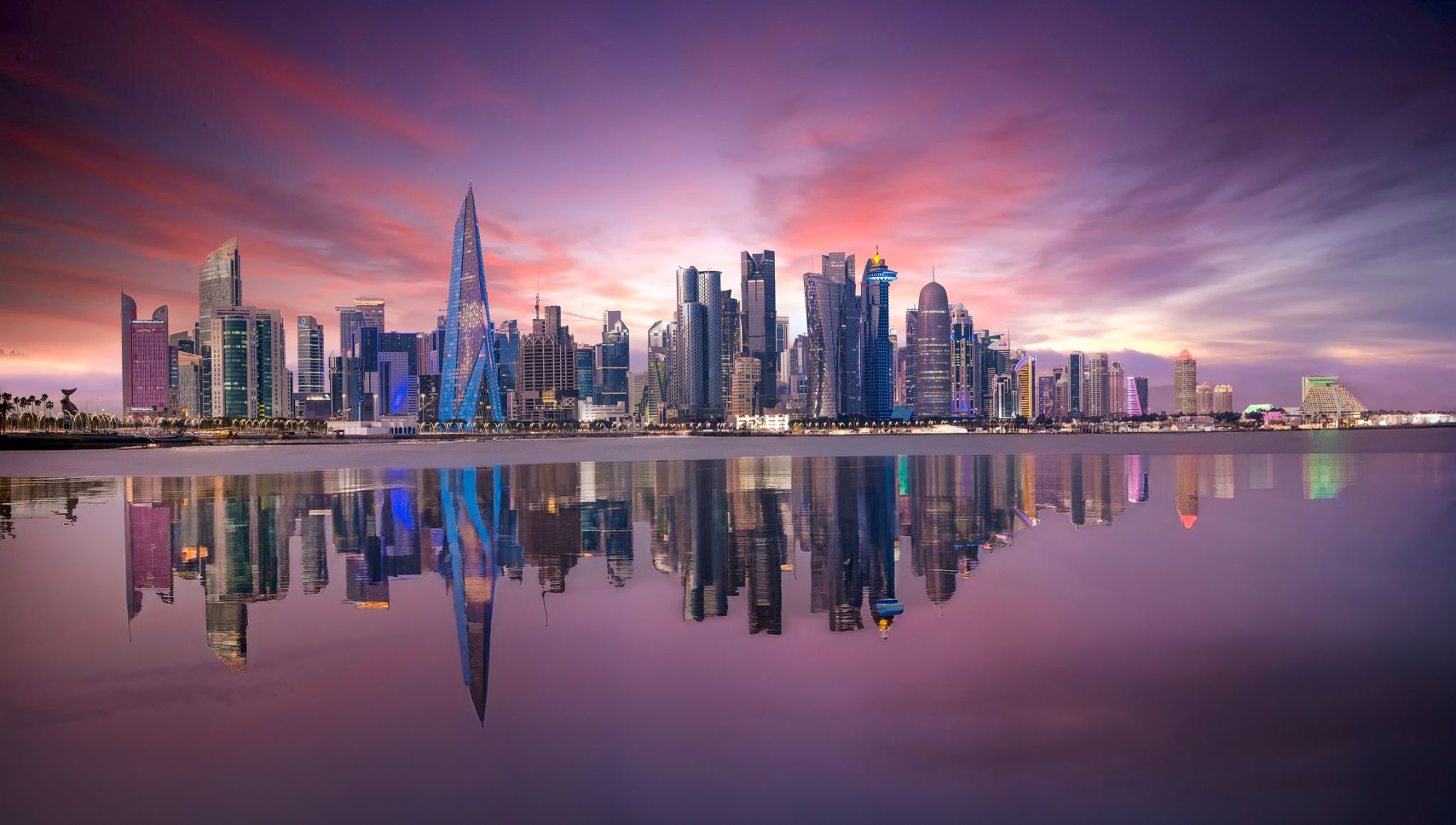
the capital of Qatar, in the eastern part of the country; pop 385,000 (est. 2007).

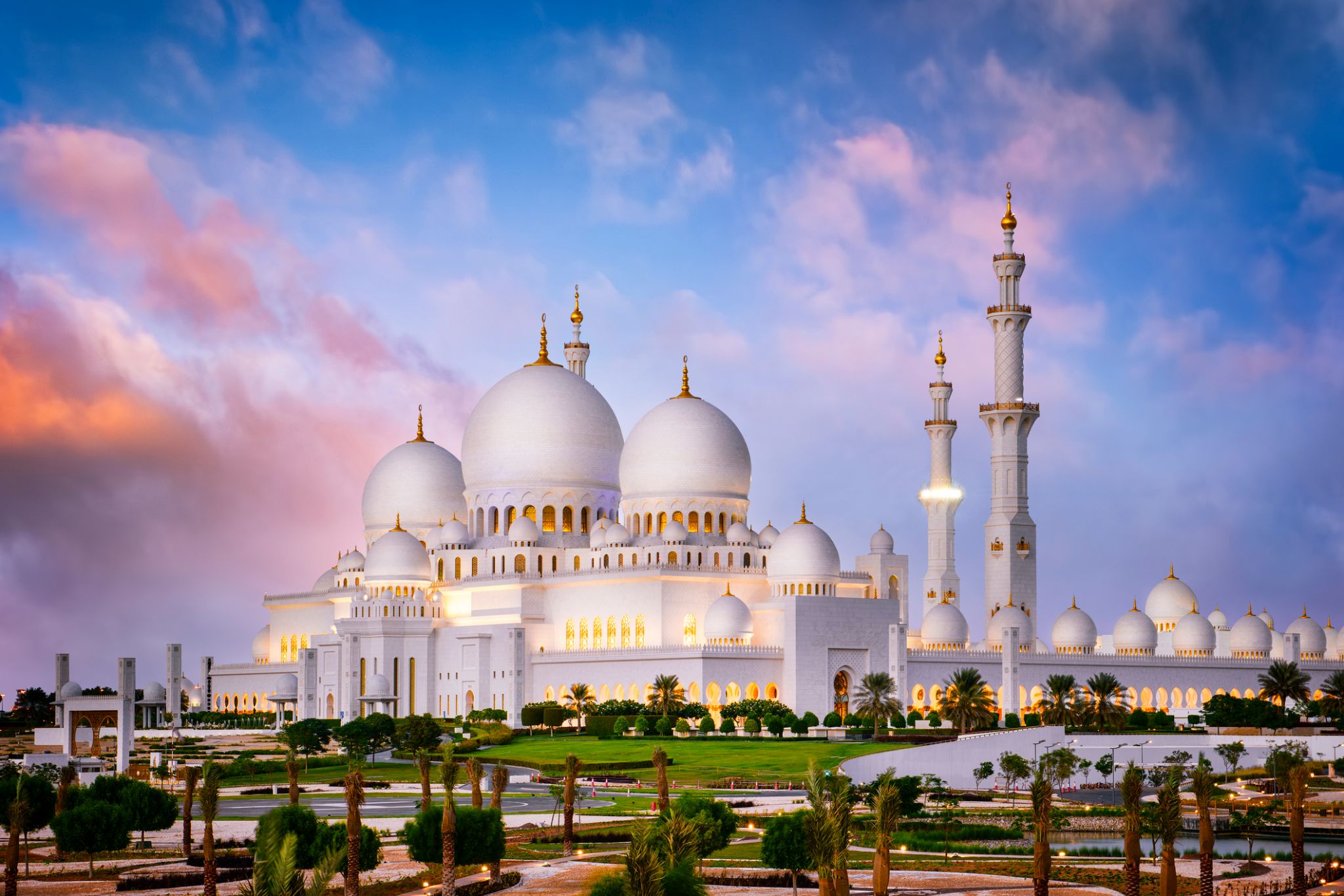
Abu Dhabi is the capital and the second most populous city of the United Arab Emirates (the most populous being Dubai), and also capital of the Emirate of Abu Dhabi, the largest of the UAE's seven emirates. Abu Dhabi lies on a T-shaped island jutting into the Persian Gulf from the central western coast. The city of Abu Dhabi has an estimated population of 1.8 million in 2016.
Abu Dhabi houses federal government offices, is the seat of the United Arab Emirates Government, home to the Abu Dhabi Emiri Family and the President of the UAE, who is from this family. Abu Dhabi's rapid development and urbanisation, coupled with the relatively high average income of its population, has transformed the city into a large and advanced metropolis. Today the city is the country's centre of political and industrial activities, and a major cultural and commercial centre, due to its position as the capital. Abu Dhabi accounts for about two-thirds of the roughly $400-billion United Arab Emirates economy.

Dubai is the largest and most populous cityin the United Arab Emirates (UAE). On the southeast coast of the Persian Gulf, it is the capital of the Emirate of Dubai, one of the seven emirates that make up the country.
Dubai is a global city and business hub of the Middle East. It is also a major global transport hub for passengers and cargo. Oil revenue helped accelerate the development of the city, which was already a major mercantile hub, but Dubai's oil reserves are limited and production levels are low: today, less than 5% of the emirate's revenue comes from oil. A growing centre for regional and international trade since the early 20th century, Dubai's economy today relies on revenues from trade, tourism, aviation, real estate, and financial services.
Dubai has attracted world attention through large construction projects and sports events, in particular the world's tallest building, the Burj Khalifa. As of 2012, Dubai was the most expensive city in the Middle East. In 2014, Dubai's hotel rooms were rated as the second most expensive in the world.

Dubai is the largest and most populous cityin the United Arab Emirates (UAE). On the southeast coast of the Persian Gulf, it is the capital of the Emirate of Dubai, one of the seven emirates that make up the country.
Dubai is a global city and business hub of the Middle East. It is also a major global transport hub for passengers and cargo. Oil revenue helped accelerate the development of the city, which was already a major mercantile hub, but Dubai's oil reserves are limited and production levels are low: today, less than 5% of the emirate's revenue comes from oil. A growing centre for regional and international trade since the early 20th century, Dubai's economy today relies on revenues from trade, tourism, aviation, real estate, and financial services.
Dubai has attracted world attention through large construction projects and sports events, in particular the world's tallest building, the Burj Khalifa. As of 2012, Dubai was the most expensive city in the Middle East. In 2014, Dubai's hotel rooms were rated as the second most expensive in the world.